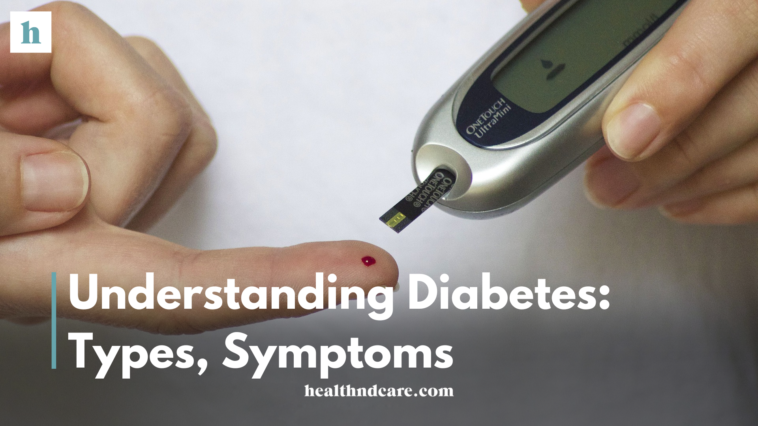Diabetes is a condition that impairs the body’s ability to convert blood glucose (sugar) to energy. One of the most dangerous aspects of this condition is how much damage it could do to your overall health over the years if not taken care of.
This is why it is tremendously advantageous to be well educated about the various types, symptoms and management of diabetes. Which in turn enables the individual to lead a much healthier and better quality of life.
Types of Diabetes
1. Type 1 Diabetes
In type 1 diabetes, the immune system of the person with the disease is compromised to the point where it begins producing cell antibodies. That destroy other cells that produce insulin in the pancreas.
This makes the patient reliant on insulin and unable to use glucose properly, thereby putting their young children and adolescents at risk of developing high blood sugar. People affected by Type 1 diabetes suffer for a lifetime and receive insulin shots for management.
2. Type 2 Diabetes
Type 2 diabetes is more prevalent than the first, accounting for about 90-95 percent of all cases of diabetes. In such a case, the body is overproducing the insulin hormone or fails to produce enough. This is often coupled with excess weight, lack of exercise and bad food choices people make.
Magic pills do not exist, and therefore it is important for people with type two diabetes to alter their lifestyle. And although pills or injections may be required to some extent throughout the lifetime, it can be prevented as well.
3. Gestational Diabetes
Gestational diabetes is the kind of diabetes that presents itself during pregnancy. It is a temporary condition as it subsides after delivery as pertains to the mother. However, it increases the risk of developing Type Two diabetes for both of the parents and the child. Screening for this condition is done regularly during the course of pregnancy.
4. Other Specific Types
There are other kinds of diabetes that are rare, including monogenic and secondary and even diabetes that is a result of other medical conditions or medicine intake. Collaborating with the healthcare providers is recommended for the specific type of diabetes to be determined and the appropriate treatment given.

Common Symptoms of Diabetes
Diabetes is a very manageable condition if the sugars and their presenting symptoms are recognized early enough. Such symptoms include:
Increased Thirst and Hunger: Such symptoms might include extreme thirst known as polydipsia or a kind of insatiable hunger termed polyphagia as a result of high blood glucose.
Frequent Urination: Results of high blood sugars would be polyuria to eliminate sugar.
Fatigue: One of the causative factors of feeling tired is ineffectiveness of the body cells to utilize glucose for energy by diabetes patients.
Blurred Vision: Changes in the eye lenses due to high levels of sugars would tend to have an impact on the vision of the respective patient.
Prolonged Duration to Heal Cuts and Wounds: Diabetes may cause the blood circulation and nerves to get affected, therefore healing takes very long duration.
Tingling or numbness: Tingling of hands and feet or numbness is caused due to the damage of the nerves.
Management of Diabetes
Lifestyle Changes
One of the best ways to manage sugar is through lifestyle changes. Some essential strategies include:
Diet: Taking healthy diet comprising of more vegetables, fruits, whole grains, lean proteins, and healthy fats could be very helpful to blood sugar levels; portion control and carb counting are equally important.

Adding Physical Exercise in the Routine: This triggers somebody’s weight controls. Do moderate aerobic activity not less than 150 minutes on a weekly basis.
Maintaining Weight: Healthy weight loses could work wonders when it comes to controlling blood sugar levels for patients of Type 2 .
Medication Management
There may be individuals for whom the above methods might not work, however, one can use a few oral hypoglycemics or insulin therapy for blood glucose control. Regular monitoring of the disease to healthcare professional can direct the appropriate management.
Observing Blood Sugar Levels
All diabetic individuals should put considerable attention on the regular checks of the blood glucose levels. This would assist to make sense of their blood sugar level changes due to food, exercise and medication and enable active steps in the improvement process.
Assistance and Promotion
Assistance is also important in the management of sugar. People ought to have information concerning the disease, the therapies available and how to identify and cope with its complications. Support and solicitations for counseling can also assist in coping with daily life with a chronic disease.



